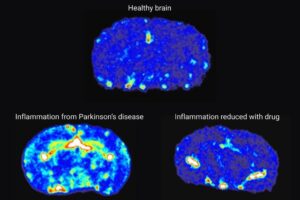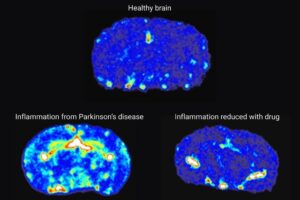
Female make shape of heart with her hands. Light summer breakfast with organic yogurts, fruits, berries and nuts. Nutrition that promotes good digestion and functioning of gastrointestinal tract.
Research emphasizes the crucial connection between gut health, immunity, and mental wellbeing. According to nutritionist Sarah Di Lorenzo, maintaining a healthy gut can significantly reduce the risk of respiratory infections, including colds and flu, while also enhancing mood and cognitive function. The gut microbiome, a diverse community of microbes residing in the digestive tract, plays a fundamental role in these processes.
Approximately 70 percent of the body’s immune cells are located in the intestinal tract. These immune cells interact with trillions of gut microbes, which help distinguish between beneficial substances and potential threats. A well-balanced gut microbiome trains the immune system to recognize and effectively respond to various challenges. Conversely, disruptions in this microbial balance, known as dysbiosis, can weaken the body’s immune response, making individuals more vulnerable to illnesses.
Recent studies have explored the gut–lung axis, revealing that changes in gut microorganisms can affect lung immunity and respiratory health. Factors such as stress, antibiotic use, and poor diet can disrupt gut balance, increasing susceptibility to respiratory issues, flu, and asthma.
To promote gut health, a diet rich in fiber and fermented foods is essential. Foods like yogurt, kimchi, sauerkraut, miso, kombucha, tempeh, and tofu nourish beneficial microbes and enhance the production of short-chain fatty acids, such as butyrate, which are vital for overall health and immune function. Di Lorenzo recommends aiming to consume 30 different plant foods each week, a goal that is more achievable than it may seem.
The Gut-Brain Connection and Mental Health
The gut–brain axis illustrates the constant communication between gut microorganisms and the brain, mediated by hormonal, neural, and immune signals. Research indicates that individuals suffering from depression, anxiety, and stress-related conditions often exhibit disrupted gut microbiota. A diverse gut microbiome is associated with a lower incidence of these mental health issues. Clinical trials have shown that patients treated with probiotics for mental health conditions often report improvements.
The gut is responsible for producing approximately 90 percent of the body’s serotonin, a neurotransmitter that significantly impacts mood and digestion. Gut microbes influence serotonin levels by metabolizing dietary tryptophan and signaling gut cells to release this crucial neurotransmitter. Furthermore, serotonin communicates with the brain through the vagus nerve, affecting mood and anxiety levels. Similarly, nearly half of the body’s dopamine is synthesized in the gut, using amino acids from protein-rich foods such as soy, beef, fish, tofu, and eggs. Dopamine influences not only mood but also digestive processes and the movement of food.
When gut bacteria fluctuate, they can alter the production of serotonin and dopamine, potentially impacting mood and the body’s stress response. To maintain a healthy balance, it is vital to incorporate a variety of plant-based foods, including fruits, vegetables, whole grains, and legumes, into the diet. Regularly consuming fermented foods is also beneficial. Simple changes, like adding sauerkraut to salads or replacing an afternoon coffee with miso soup, can make a significant difference.
Practical Steps for Enhancing Gut Health
Removing processed foods, excess sugar, and junk food from one’s diet is essential for supporting gut health. For additional support, individuals may consider high-quality probiotics. By prioritizing gut health through dietary choices, lifestyle adjustments, and probiotics, individuals can bolster their immunity and reduce the risk of colds, flu, and respiratory infections while simultaneously improving their mental health.
In summary, nurturing gut health is integral to enhancing overall wellbeing. With a mindful approach to diet and lifestyle, individuals can significantly influence their immune response and mood, fostering a healthier and more resilient body.






